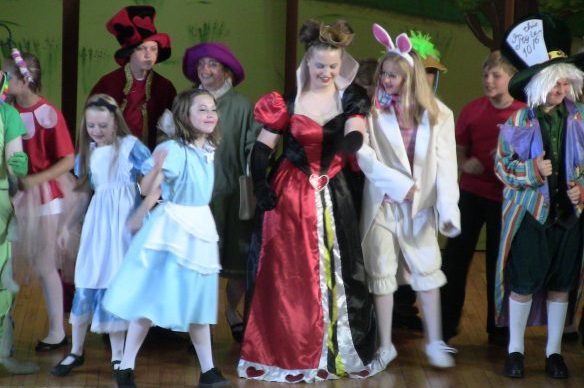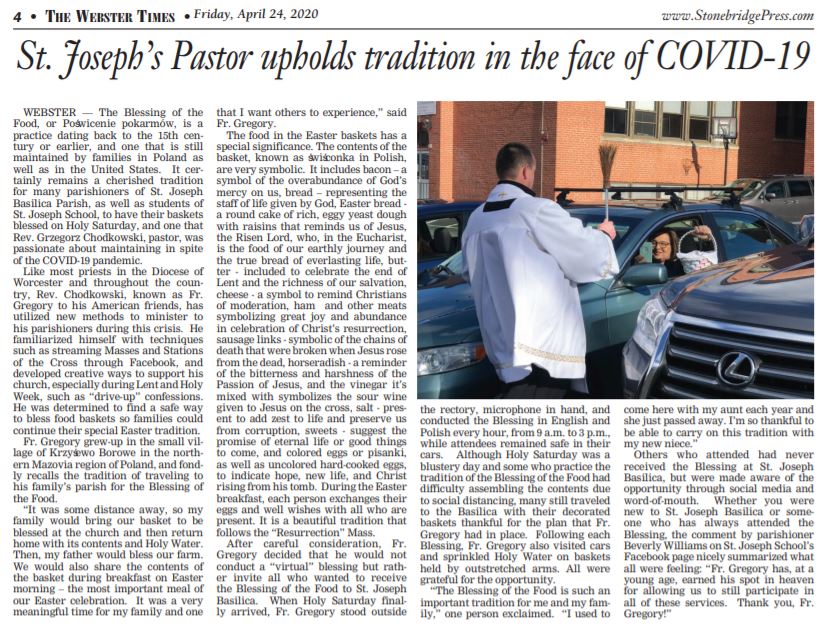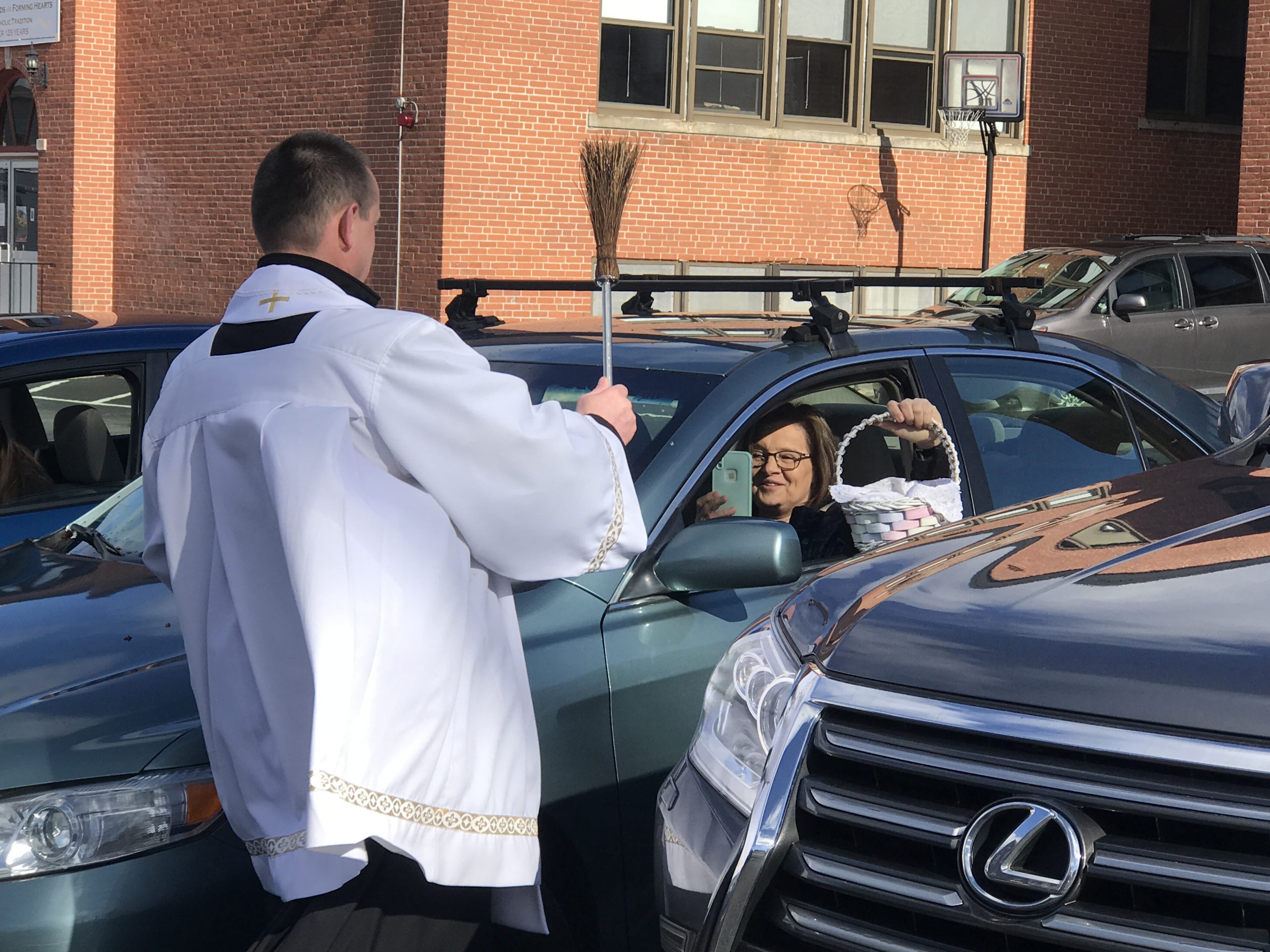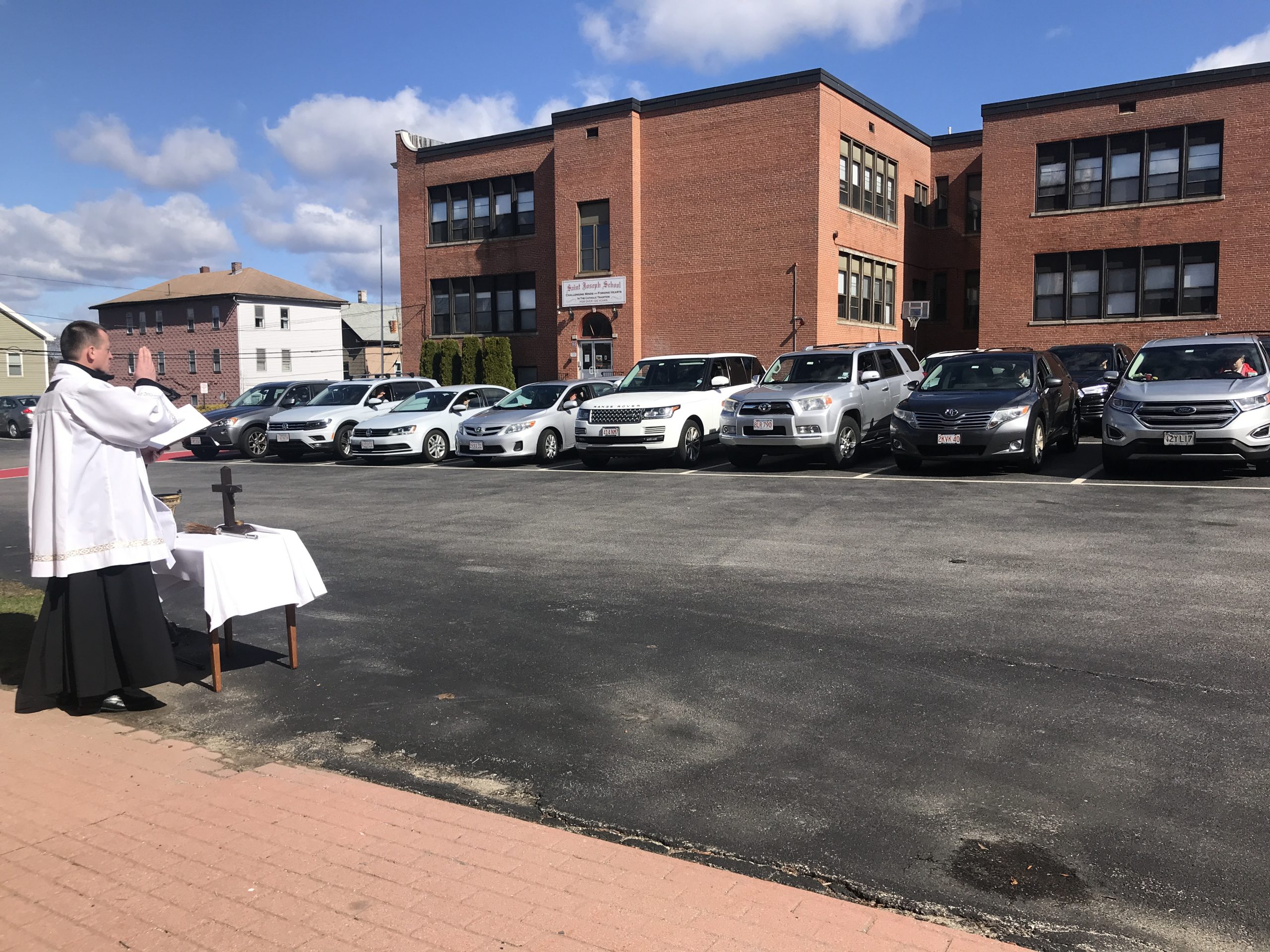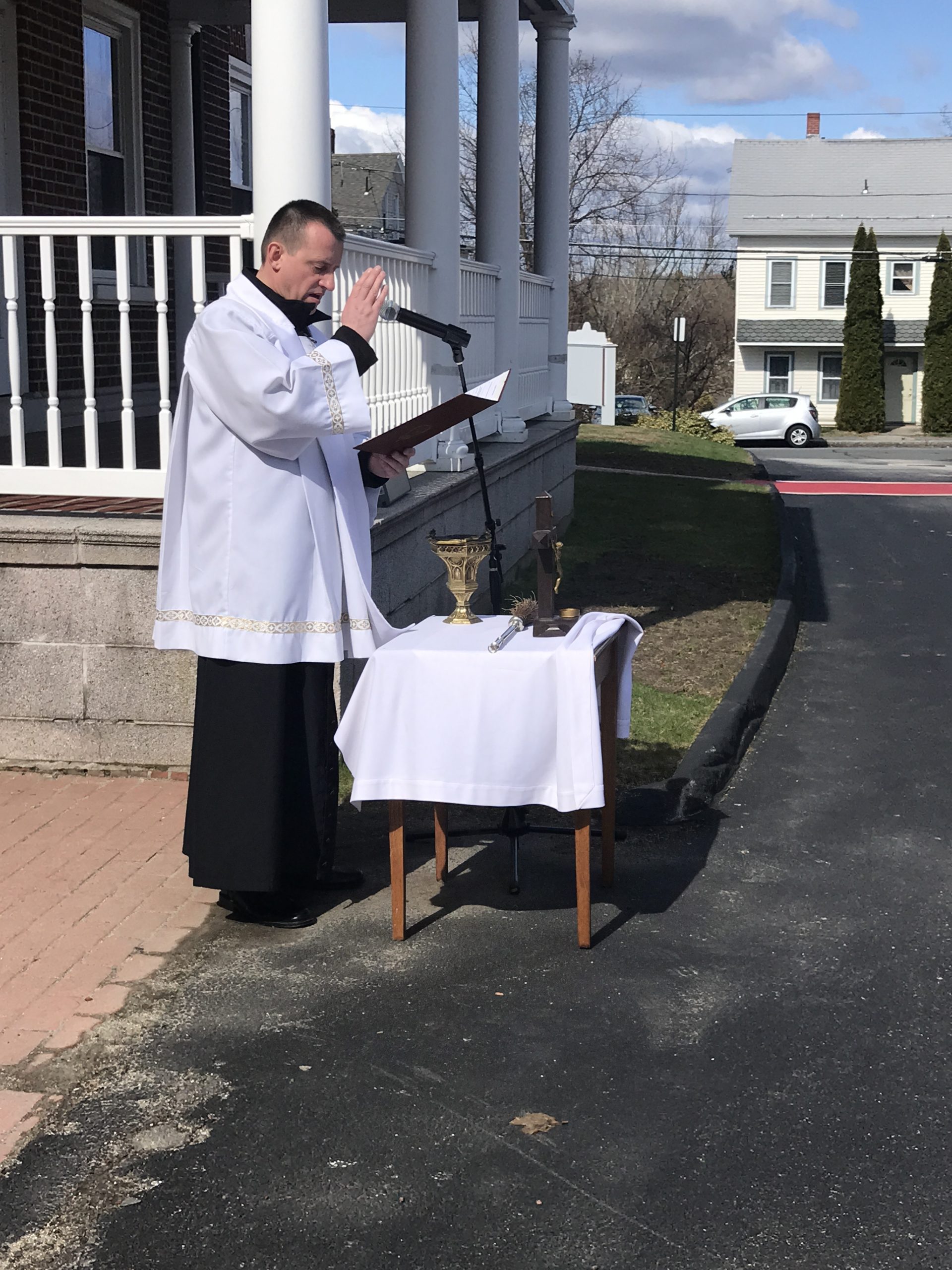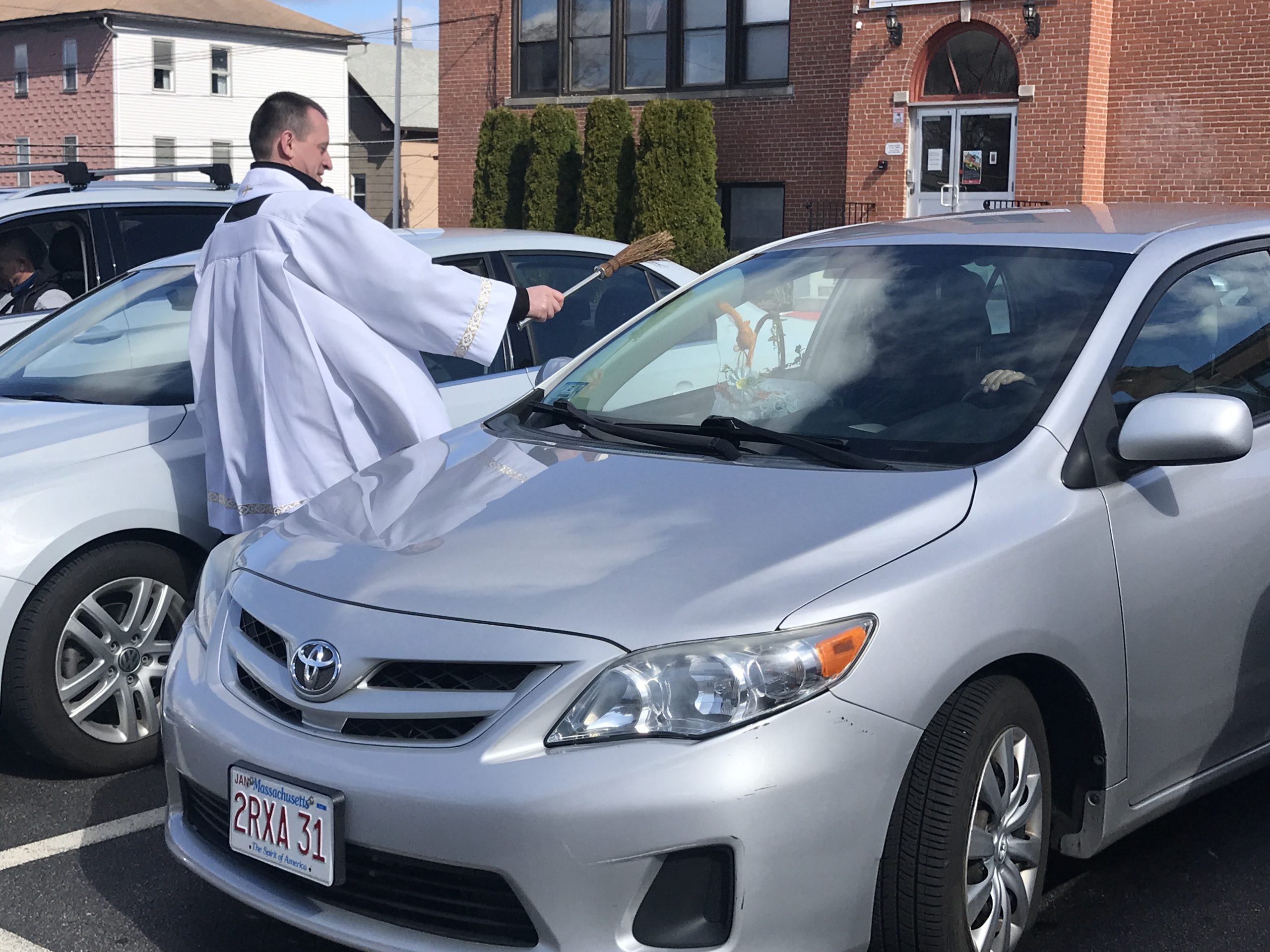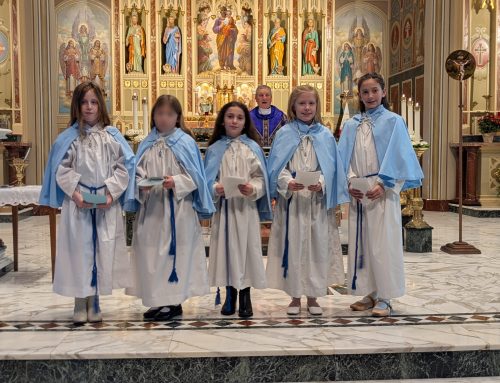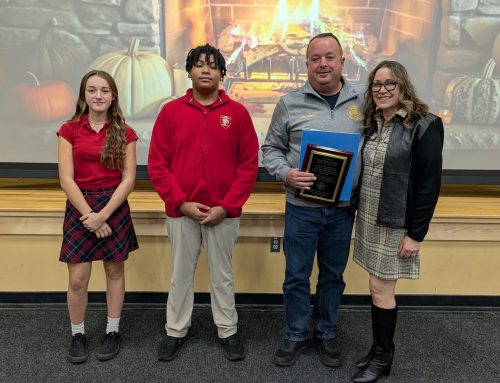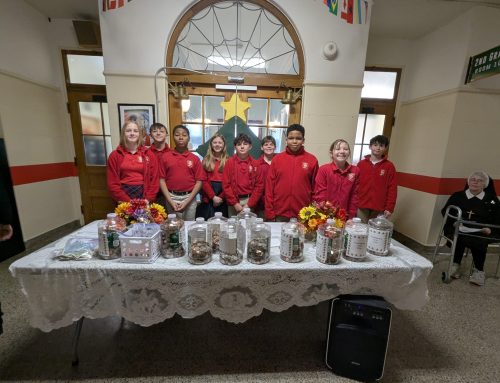The Blessing of the Food or Poświęcenie pokarmów is a practice dating back to the 15th century or earlier, and one that is still maintained by families in Poland as well as in the United States. It certainly remains a cherished tradition for many parishioners of St. Joseph Basilica Parish, as well as students of St. Joseph School, to have their baskets blessed on Holy Saturday, and one that Rev. Grzegorz Chodkowski, pastor, was passionate about maintaining in spite of the COVID-19 pandemic.
Like most priests in the Diocese of Worcester and throughout the country, Rev. Chodkowski, known as Fr. Gregory to his American friends, has utilized new methods to minister to his parishioners during this crisis. He familiarized himself with techniques such as streaming Masses and Stations of the Cross through Facebook, and developed creative ways to support his church, especially during Lent and Holy Week, such as “drive-up” confessions. He was determined to find a safe way to bless food baskets so families could continue their special Easter tradition.
Fr. Gregory grew-up in the small village of Krzyżewo Borowe in the northern Mazovia region of Poland and fondly recalls the tradition of traveling to his family’s parish for the Blessing of the Food. “It was some distance away, so my family would bring our basket to be blessed at the church and then return home with its contents and Holy Water. Then, my father would bless our farm. We would also share the contents of the basket during breakfast on Easter morning – the most important meal of our Easter celebration. It was a very meaningful time for my family and one that I want others to experience,” said Fr. Gregory.
The food in the Easter baskets has a special significance. The contents of the basket, known as święconka in Polish, are very symbolic. It includes bacon – a symbol of the overabundance of God’s mercy on us, bread – representing the staff of life given by God, Easter bread – a round cake of rich, eggy yeast dough with raisins that reminds us of Jesus, the Risen Lord, who, in the Eucharist, is the food of our earthly journey and the true bread of everlasting life, butter – included to celebrate the end of Lent and the richness of our salvation, cheese – a symbol to remind Christians of moderation, ham and other meats symbolizing great joy and abundance in celebration of Christ’s resurrection, sausage links – symbolic of the chains of death that were broken when Jesus rose from the dead, horseradish – a reminder of the bitterness and harshness of the Passion of Jesus, and the vinegar it’s mixed with symbolizes the sour wine given to Jesus on the cross, salt – present to add zest to life and preserve us from corruption, sweets – suggest the promise of eternal life or good things to come, and colored eggs or pisanki, as well as uncolored hard-cooked eggs,to indicate hope, new life, and Christ rising from his tomb. During the Easter breakfast, each person exchanges their eggs and well wishes with all who are present. It is a beautiful tradition that follows the “Resurrection” Mass.
After careful consideration, Fr. Gregory decided that he would not conduct a “virtual” blessing but rather invite all who wanted to receive the Blessing of the Food to St. Joseph Basilica. When Holy Saturday finally arrived, Fr. Gregory stood outside the rectory, microphone in hand, and conducted the Blessing in English and Polish every hour, from 9:00 am to 3:00 pm, while attendees remained safe in their cars. Although Holy Saturday was a blustery day and some who practice the tradition of the Blessing of the Food had difficulty assembling the contents due to social distancing, many still traveled to the Basilica with their decorated baskets thankful for the plan that Fr. Gregory had in place. Following each Blessing, Fr. Gregory also visited cars and sprinkled Holy Water on baskets held by outstretched arms. All were grateful for the opportunity. “The Blessing of the Food is such an important tradition for me and my family,” one person exclaimed. “I used to come here with my aunt each year and she just passed away. I’m so thankful to be able to carry on this tradition with my new niece.” Others who attended had never received the Blessing at St. Joseph Basilica, but were made aware of the opportunity through social media and word-of-mouth. Whether you were new to St. Joseph Basilica or someone who has always attended the Blessing, the comment by parishioner Beverly Williams on St. Joseph School’s Facebook page nicely summarized what all were feeling, “Fr. Gregory has, at a young age, earned his spot in heaven for allowing us to still participate in all of these services. Thank you, Fr. Gregory!”
Fr. Gregory’s efforts were featured in the April 24, 2020 issue of the Webster Times




